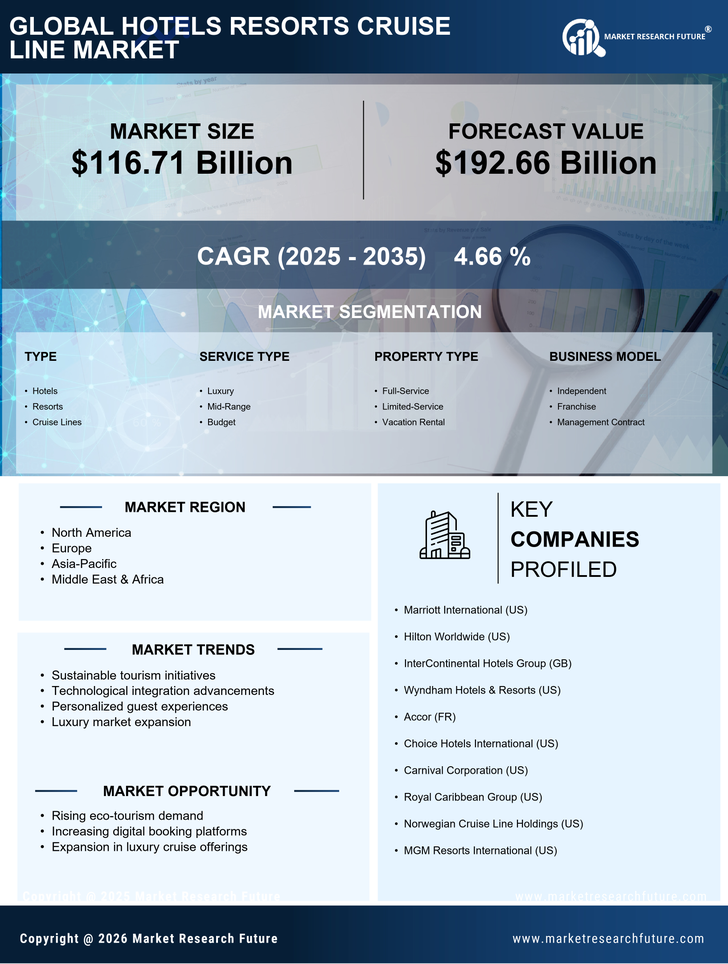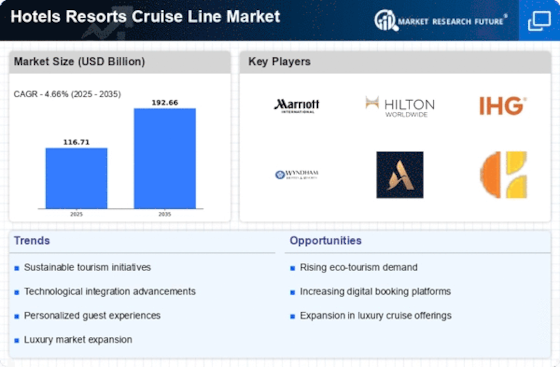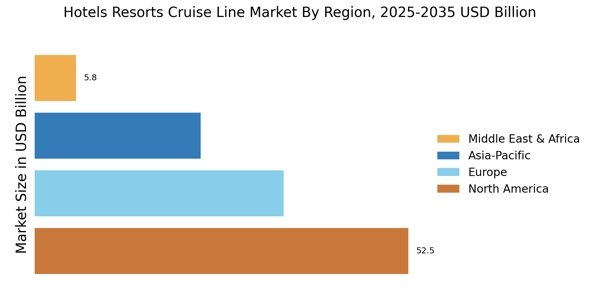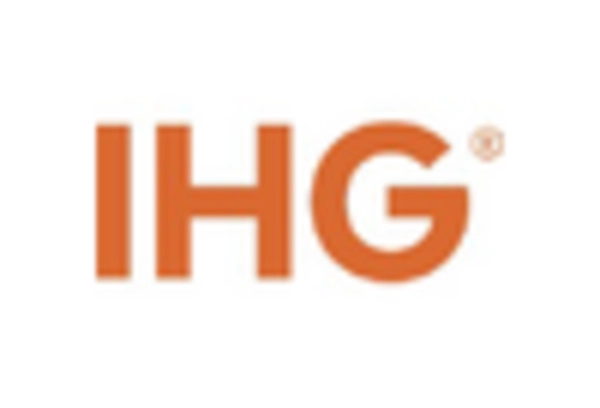North America : Market Leader in Hospitality
North America remains the largest market for the Hotels, Resorts, and Cruise Line sector, holding approximately 45% of the global market share. Key growth drivers include a robust tourism industry, increasing disposable incomes, and a strong focus on customer experience. Regulatory support, such as tourism promotion initiatives, further catalyzes growth. The U.S. is the largest market, followed by Canada, which contributes around 10% to the overall market share. The competitive landscape is dominated by major players like Marriott International, Hilton Worldwide, and Carnival Corporation. The presence of these key players ensures a diverse range of offerings, from luxury hotels to budget accommodations and cruise lines. The U.S. market is characterized by high occupancy rates and a growing trend towards experiential travel, which is reshaping consumer preferences in the hospitality sector.
Europe : Cultural Hub for Tourism
Europe is a significant player in the Hotels, Resorts, and Cruise Line market, accounting for approximately 30% of the global market share. The region benefits from a rich cultural heritage, diverse attractions, and a strong influx of international tourists. Regulatory frameworks, such as the EU's tourism policies, promote sustainable tourism practices, enhancing the region's appeal. France and Spain are the largest markets, contributing around 12% and 10% respectively to the overall market share. Leading countries like France, Germany, and Italy showcase a competitive landscape with numerous international hotel chains and local boutique hotels. Key players such as Accor and InterContinental Hotels Group have a strong presence, catering to various market segments. The cruise industry is also thriving, with major cruise lines operating in the Mediterranean, attracting millions of tourists annually.
Asia-Pacific : Emerging Market Potential
The Asia-Pacific region is rapidly emerging as a powerhouse in the Hotels, Resorts, and Cruise Line market, holding approximately 20% of the global market share. Key growth drivers include rising middle-class populations, increasing travel accessibility, and government initiatives promoting tourism. Countries like China and India are leading this growth, with China alone contributing around 12% to the market share, driven by domestic and international tourism trends. The competitive landscape is characterized by a mix of international and local players, with companies like Wyndham Hotels and Resorts and Marriott expanding their footprints. The region is witnessing a surge in luxury and boutique hotels, catering to the evolving preferences of travelers. Additionally, the cruise industry is gaining traction, with new cruise routes and investments in port infrastructure enhancing the overall market landscape.
Middle East and Africa : Diverse Tourism Landscape
The Middle East and Africa region is witnessing significant growth in the Hotels, Resorts, and Cruise Line market, accounting for approximately 5% of the global market share. Key drivers include increasing investments in tourism infrastructure, government initiatives to promote tourism, and a growing interest in luxury travel experiences. The UAE, particularly Dubai, is the largest market in the region, contributing around 3% to the overall market share, followed by South Africa with a notable tourism sector. The competitive landscape features a mix of international hotel chains and local brands, with key players like Hilton and Accor expanding their presence. The region is also seeing a rise in cruise tourism, with new cruise terminals and routes being developed. The focus on luxury and experiential travel is reshaping the market, attracting both regional and international tourists seeking unique experiences.


















